Marquee Tlingit cultural event, Haa Ḵusteeyí, ends with celebration and a plea
Leaders made a call for a return to the Tlingit way of life
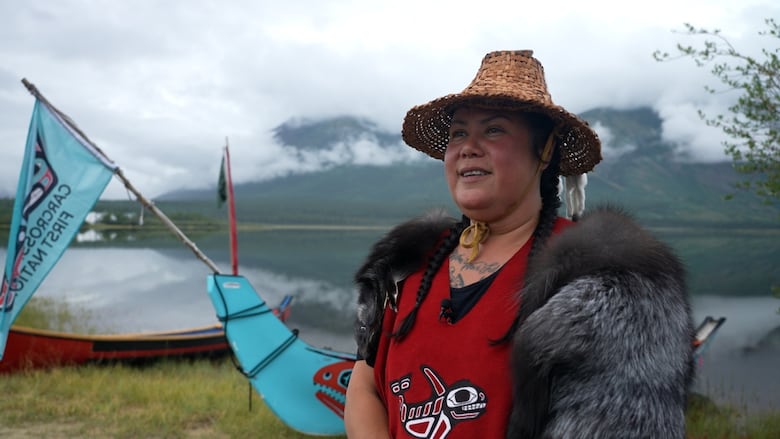
For three jam-packed days on a cloudy summer weekend, inland and coastal Tlingit communities were immersed in their traditions and celebrating their way of life at the 2025 Haa Ḵusteeyí celebration in Carcross, Yukon.
For Tagish Johns Beattie, that included warrior training. His weapon of choice? A canoe paddle.
"A warrior will have patience and be strong even if other people can't," he explained. "You got to have a lot of patience when canoeing."
Beattie was part of a group that made a three-day canoe journey from Marsh Lake to Carcross to kick off the weekend events. Like much of the Haa Ḵusteeyí celebration, the canoe trip was laden with symbolism.
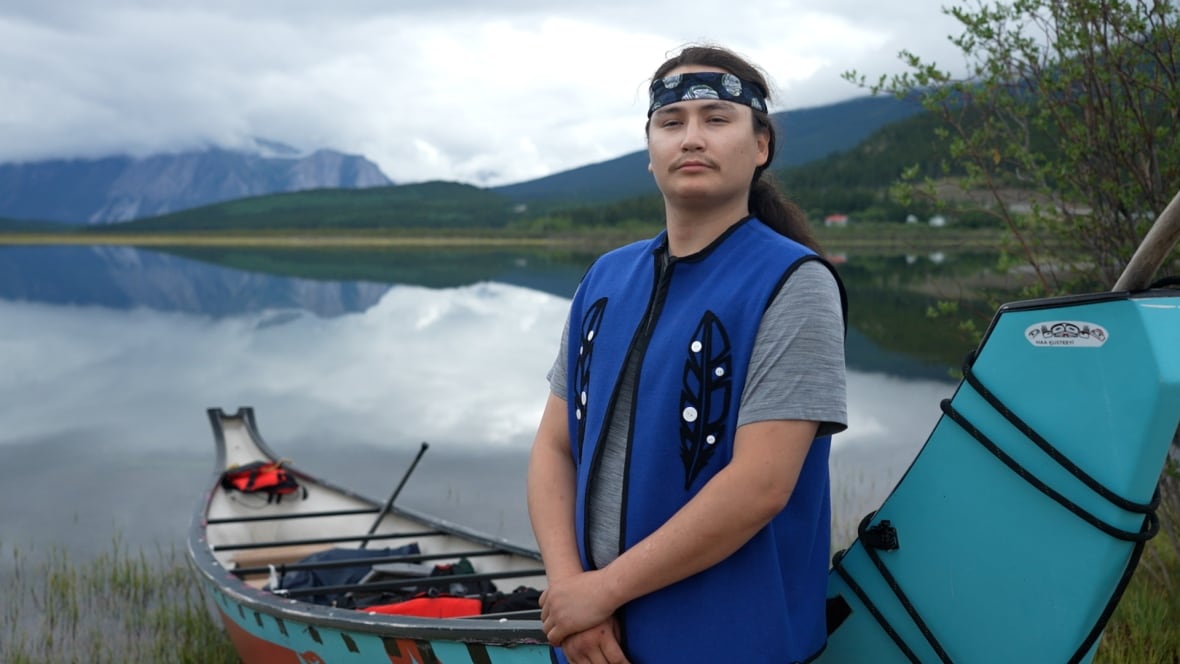
Canoe leader Donna Johns said the trip was a journey of healing for many people.
"Some of the kids in my canoe have lost parents and relatives to overdose," said canoe leader Donna Johns. "Those are the ones that I found show up first at practices, and they're the last to leave.
"We are creating a warrior society. It's not about making war, it's about protecting the elders and the weak and helping the young and being role models."
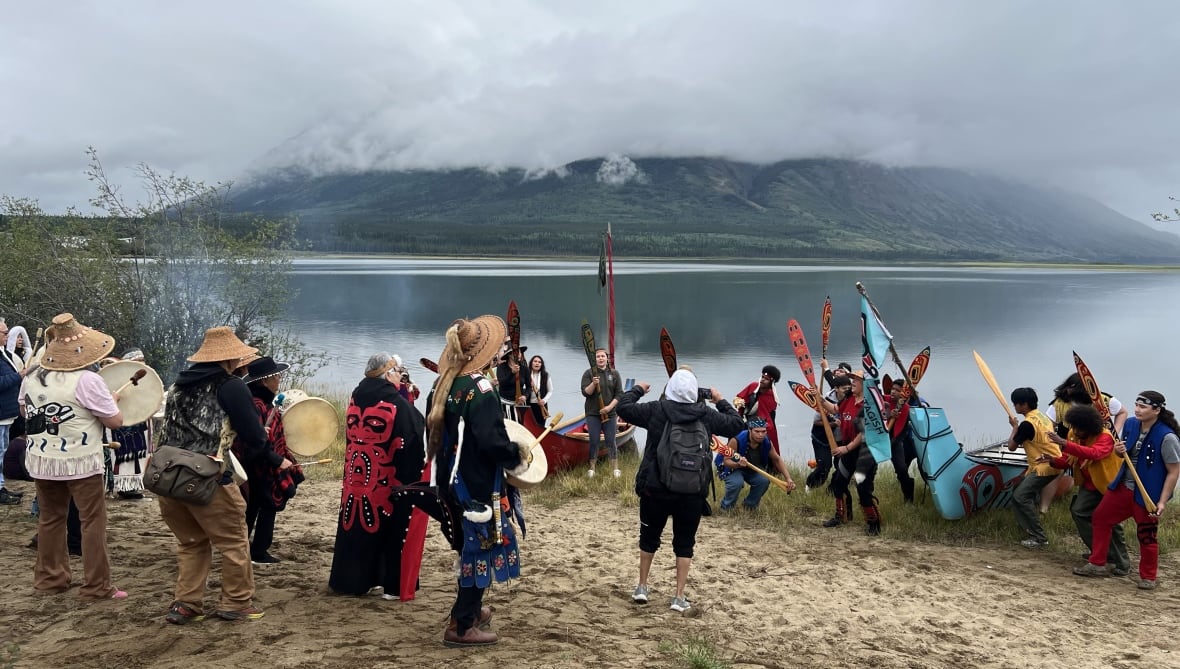
Fellow paddler Drayden Beattie, who lost his father and two relatives to overdose, agreed.
"It heals our people," he said. "Just being on the water is who we are. I feel really connected to the land and the community."
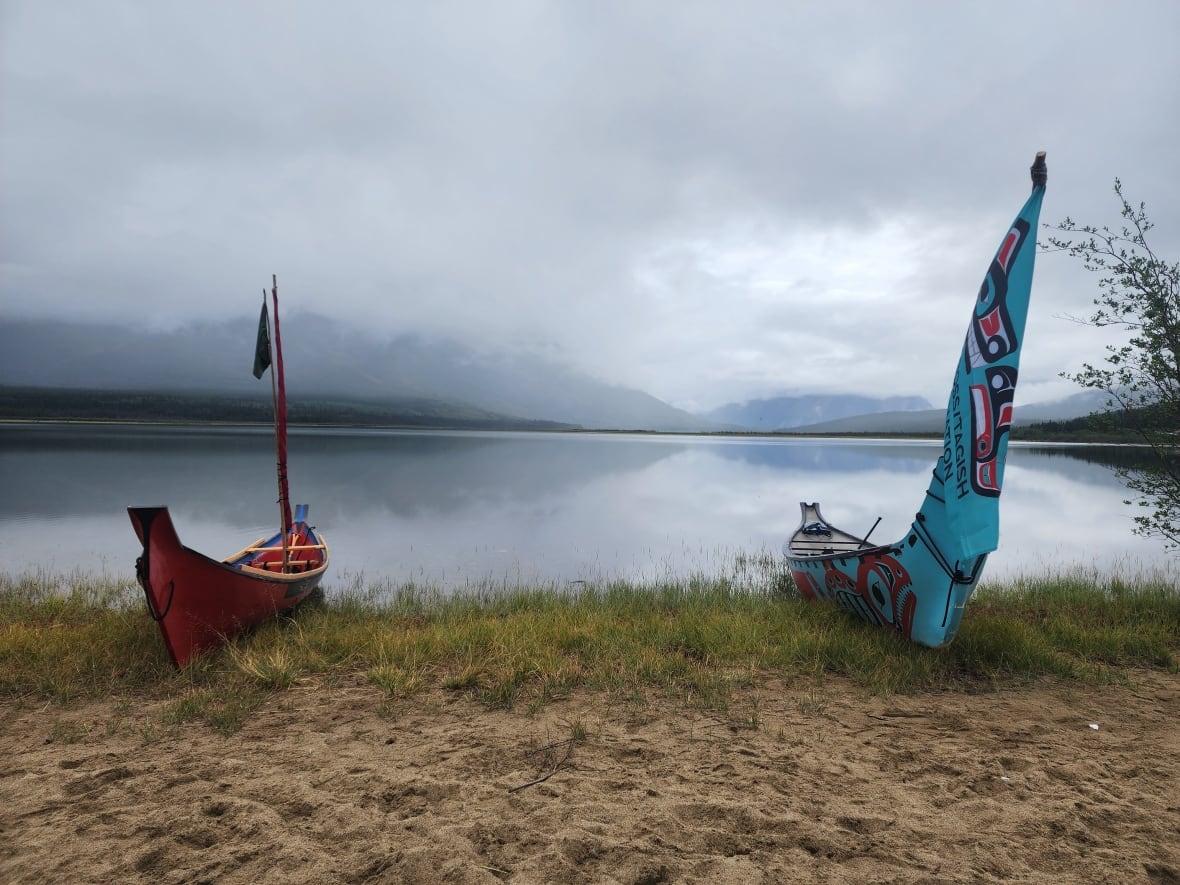
A return to traditional roots, and overcoming deep-seated trauma, are the aims of Haa Ḵusteeyí. The event has become an integral part of Tlingit cultural resurgence efforts in Canada. From moosehide tanning to fish filleting to textile weaving, it was a full-throated celebration of the Tlingit way of life threatened by colonization.
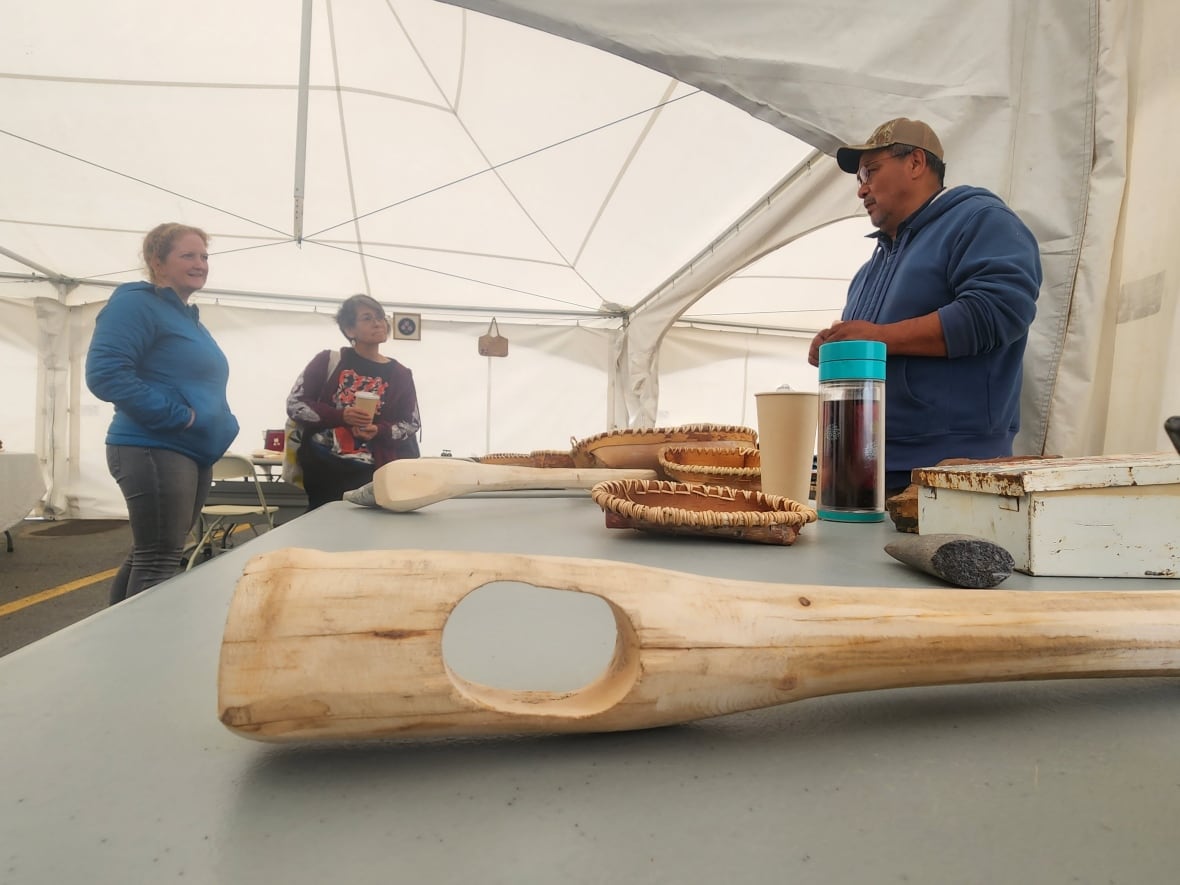
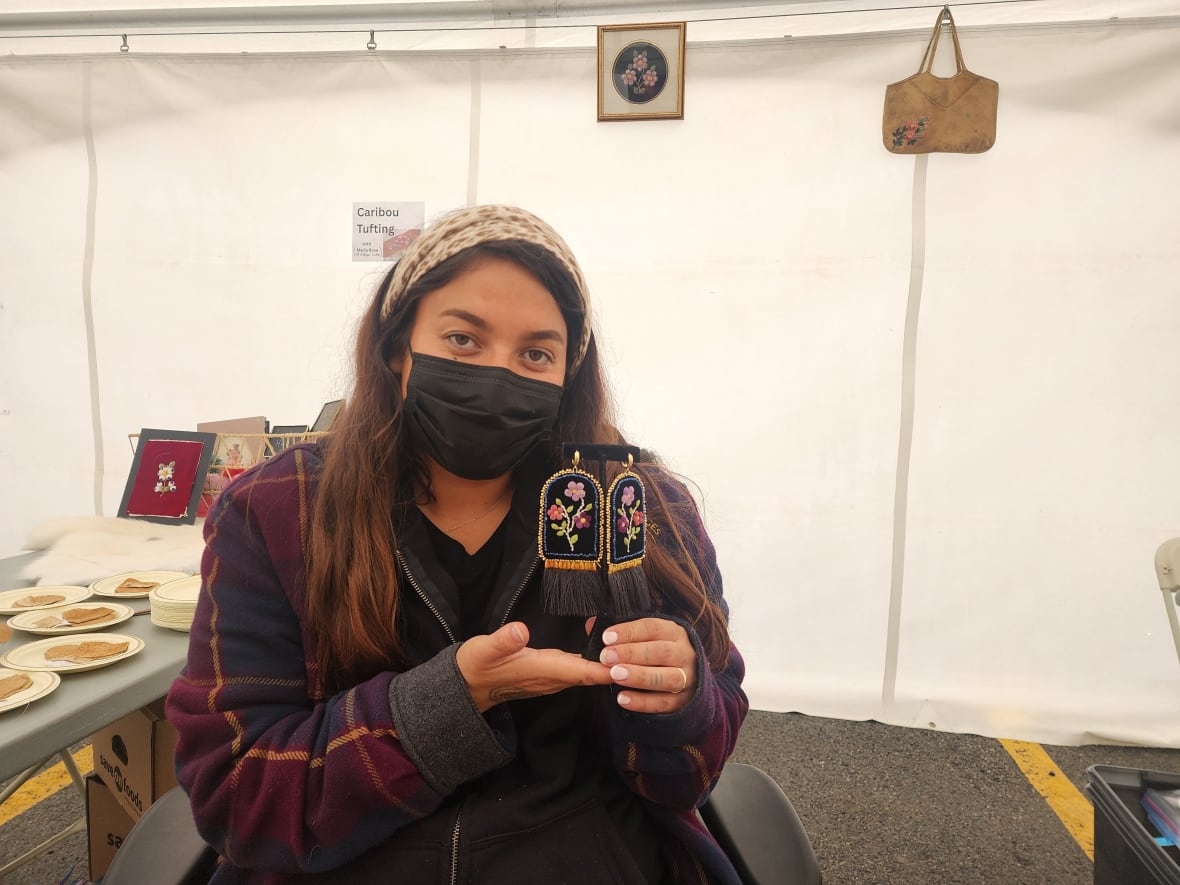
A legacy of language
"We know that the poison pill dropped among us wants us to fight with one another. But that's not going to happen," said Lance Twitchell, a coastal Tlingit knowledge keeper from Juneau, in his closing speech at the weekend event.
"All these things that might make you doubt yourself, that might make you angry at each other…we ask you to let go of these things."
Twitchell delivered some of his speech in Tlingit and his daughter Kiana Twitchell translated. He is a scholar known for his efforts to revitalize the endangered language and the translation by his daughter was, on its own, a strong message.
"A glorious day is coming when we won't need subtitles or translations for our own languages," he said to loud applause.
Another coastal Tlingit representative, Sealaska Corporation, a for-profit entity established after the largest land claim settlement in the U.S. in 1971, had a booth at the event for the first time.
Sealaska's Community Engagement Coordinator Carla Casulucan acknowledged that coastal Tlingit, largely from southeast Alaska, and inland Tlingit peoples, generally from Yukon and northern B.C., often share best practices when it comes to cultural revitalization. She says Haa Ḵusteeyí, although smaller than the biennial Tlingit Celebration in Juneau, is a good portent.
"There are so many more good things yet to come from the First Nation communities of Canada," she said. "And your brothers and sisters across the border are here to lift you up and support you in your efforts."
From stories to reality
Even the central art piece that greeted attendees this past weekend at the Haa Shagóon Hídi cultural centre in Carcross is an ode, and a prayer, to bring back a bygone time.
After consulting with citizens and elders, curator Sandra Storey collaborated with three other artists — Violet Gatensby, Helen O'Connor and Chelsea Ravensdale — to create a visual prayer for the salmon to return.
Things like climate change and the building of the Whitehorse dam in the 1950s have massively affected the salmon that were once plentiful in the waters around Carcross Tagish First Nation.
"The salmon don't come here anymore, they just live in our stories. So I think it's important to talk about it in that way. The fish nets we used in this project have never had salmon in them," artist Violent Gatensby said.
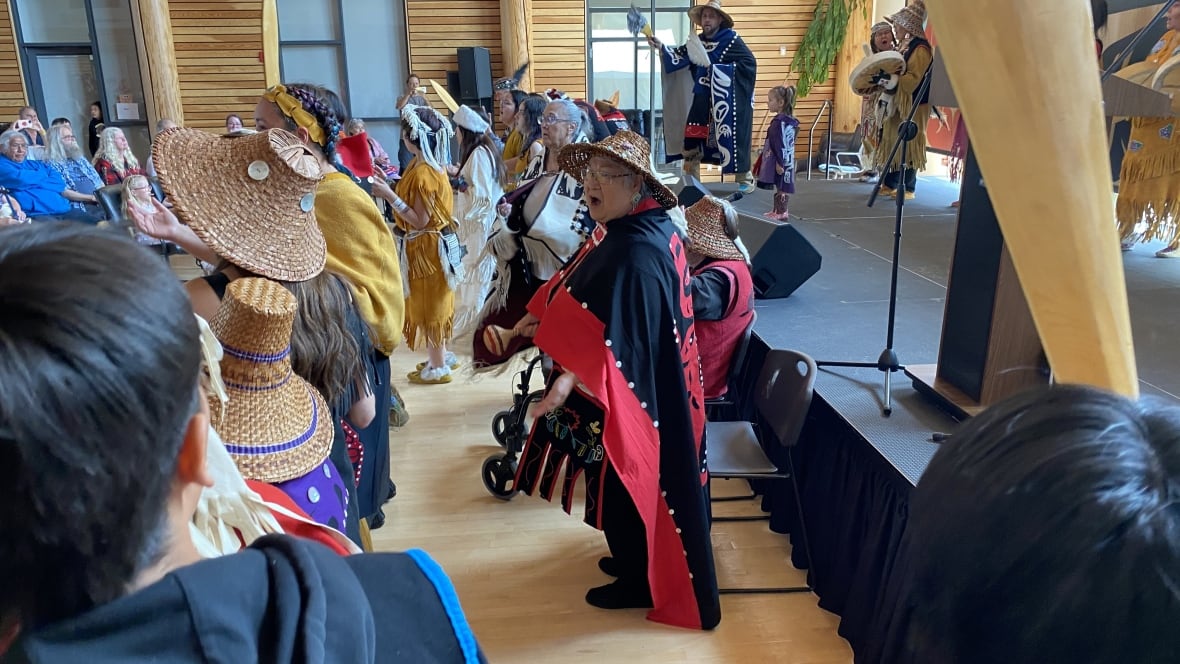
The event ended with the passing of the torch to the Teslin Tlingit Council to host the next Haa Ḵusteeyí. Organizer Nikki Welin says she wants to see the youth continuing the legacy.
"Learn what goes on, the traditions, the ceremonies, and don't be afraid to try," she advised.
The next event is set for the summer of 2027.

with files from Gordon Loverin, Marissa Meilleur, Salma Ibrahim